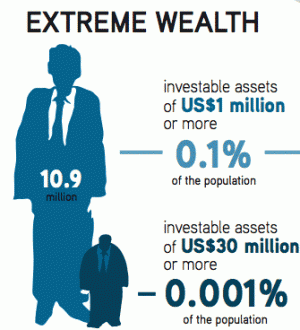Over 30 years of anarchist writing from Ireland listed under hundreds of topics
Corporate Power and the Davos Class
 The recent World Economic Forum (WEF), the one where Enda Kenny reminded us of how ‘we’ went mad borrowing, is, in fact, an appropriate reminder of global corporate power and the costs it imposes on the global working class. In a recent libcom article, Steven Colatrella has suggested that the remarkable consistency of approach to crisis resolution adopted by governments the world over, notably their pursuit of austerity at any social cost, indicates the increasing commonality of ruling class interests, a convergence owing in part to shared experiences at institutions such as the IMF, WTO, G20 and EU. The WEF meeting at the Swiss ski resort of Davos must be understood in this context of the ongoing elaboration of global governance networks.
The recent World Economic Forum (WEF), the one where Enda Kenny reminded us of how ‘we’ went mad borrowing, is, in fact, an appropriate reminder of global corporate power and the costs it imposes on the global working class. In a recent libcom article, Steven Colatrella has suggested that the remarkable consistency of approach to crisis resolution adopted by governments the world over, notably their pursuit of austerity at any social cost, indicates the increasing commonality of ruling class interests, a convergence owing in part to shared experiences at institutions such as the IMF, WTO, G20 and EU. The WEF meeting at the Swiss ski resort of Davos must be understood in this context of the ongoing elaboration of global governance networks.
Of course, the power of the Davos class did not spring from thin air. At a more systemic level, this convergence of interest owes to an increasing concentration of wealth and power in the capitalist world system. The Transnational Institute - an international network of ‘activist researchers’ based in Washington DC - recently released a series of infographic displays (see attachments) detailing the interests of the Global 0.001% and the role played by political leaders in ensuring they escape accountability. Some 0.15% of the world’s population (10.9 million people) effectively control two-thirds of the world’s GDP; 0.001% (73,000 people or so), control one-fifth, some $15.4 trillion dollars. A number of the study’s findings are particularly compelling - 41 of the world’s 100 largest economies are corporations; 1% of the world’s companies, almost all banks, control 40% of the shares of the world’s major corporations; eight of the ten largest corporations are fossil fuel (oil and gas) companies; the list goes on.
Global ruling class interests cannot impose their dictates on societies at a whim but must instead negotiate with state power-brokers to ensure their reproduction - by persuasion if possible, by force if necessary. These politicians and bureaucrats appear now as an agent of government only to resurface later as a corporate lobbyist in Washington or Brussels. Usefully, the TNI study also highlights the extensive corporate ties of the most prominent political proponents of the Davos class. Adding a splash of local colour, the list includes Charlie McCreevy and cites his role as European Commissioner for Internal Market and Services (2004-2010) in introducing a sweeping programme of EU-wide financial sector deregulation. His numerous corporate interests, including those in financial services, make for interesting reading.
Without wishing to lurch to some ‘every cloud has a silver lining’ narrative, we might plausibly expect the increasing emergence of a crisis of legitimacy for states, as power-brokers continue to side with international capital against labour locally. If austerity is the spark to light the kindling, as Colatrella suggests, global governance networks like Davos, an unrepresentative political force, acting in the interests of the few to the detriment of the many, can only add fuel to the fire.
Guest Writer: Tom Murray
| Attachment | Size |
|---|---|
| infographic of the richest people the global 0.001% | 301.83 KB |
| infographic of neoliberal architects | 173.92 KB |
| infographic of corporatepower | 197.72 KB |

